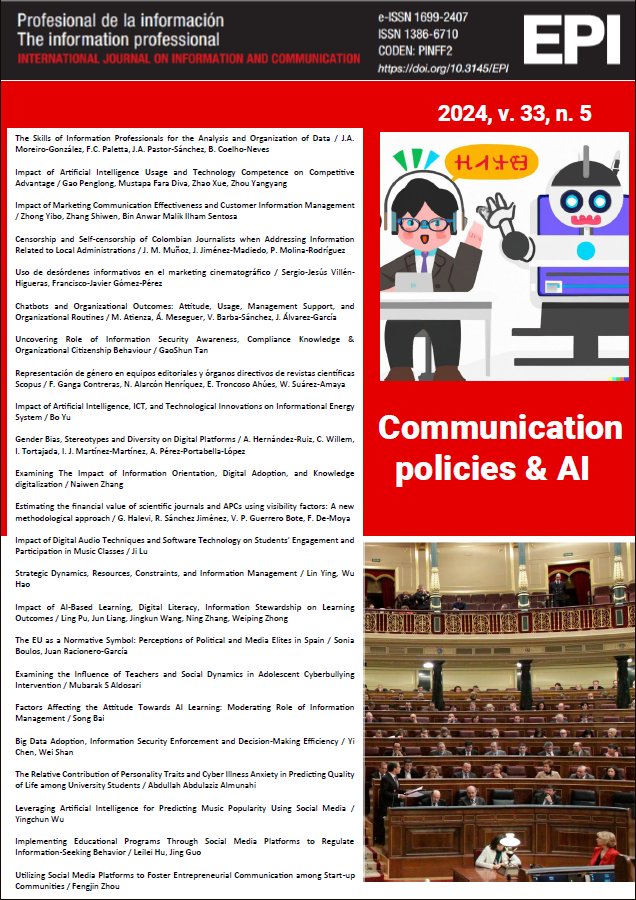Factors Affecting the Attitude Towards AI Learning: Moderating Role of Information Management
DOI:
https://doi.org/10.3145/epi.2024.ene.0518Keywords:
AI Learning, AI Self-efficacy, Digital Divide, Information Management, Cognitive Absorption.Abstract
Artificial intelligence integrated with technology has evolved into a domain offering both challenges and opportunities. Artificial intelligence (AI) has enhanced learning and aided human intelligence, but it is solely dependent upon several associated factors. By using the structural equation modeling techniques, this study examines the direct relationships between factors like digital divide, cognitive absorption, AI anxiety, AI self-efficacy, and AI learning, and the moderating role of information management. Additionally, this study also examined how all these factors influence the employees working in the service sector of China. A questionnaire was used to observe the respondents' feedback on a five-point Likert scale. The descriptive results revealed that responses have a mixed mean trend, while the standard deviation in the average scores was also less than 1. Further analysis showed that the average variance extracted for all of variables was above 0.50; the composite reliability was above 0.80 but items having less loadings were deleted, thus confirming the reliability of items. The final results show that the digital divide and information management promoted AI learning, whereas AI Anxiety impedes all types of learning among employees in the service sector. The moderating effect of information management also exists between AI self-efficacy and AI learning and between the digital divide and AI learning in this cohort of respondents.
Downloads
Downloads
Published
How to Cite
Issue
Section
License
Copyright (c) 2025 Profesional de la información

This work is licensed under a Creative Commons Attribution 4.0 International License.
Dissemination conditions of the articles once they are published
Authors can freely disseminate their articles on websites, social networks and repositories
However, the following conditions must be respected:
- Only the editorial version should be made public. Please do not publish preprints, postprints or proofs.
- Along with this copy, a specific mention of the publication in which the text has appeared must be included, also adding a clickable link to the URL: http://www.profesionaldelainformacion.com
- Only the final editorial version should be made public. Please do not publish preprints, postprints or proofs.
- Along with that copy, a specific mention of the publication in which the text has appeared must be included, also adding a clickable link to the URL: http://revista.profesionaldelainformacion.com
Profesional de la información journal offers the articles in open access with a Creative Commons BY license.




